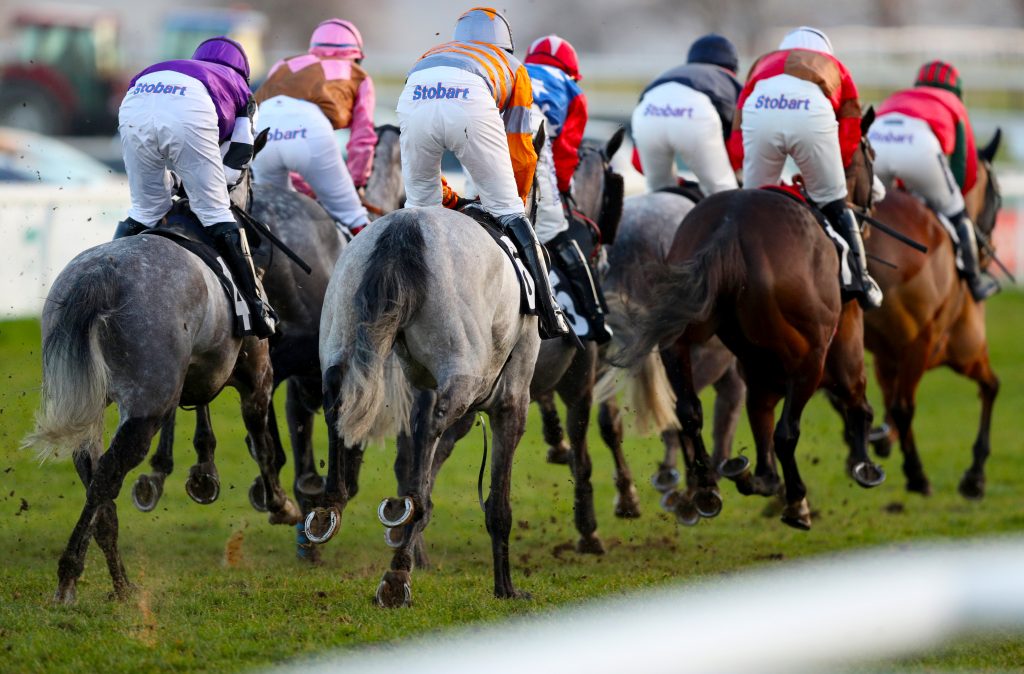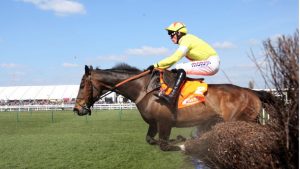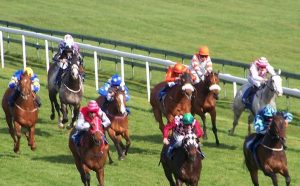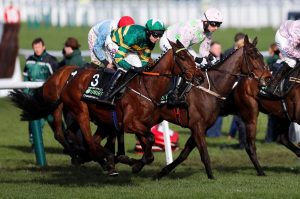Funds will be available to help jockeys hit during ‘bleak’ shutdown

PJA chief Struthers promises extra ‘packages of support’.
Support has been pledged for jockeys to help mitigate the “significant impact” on their livelihoods from the coronavirus outbreak. Racing in Britain is on hold until the end of April at the earliest – and jockeys at the lower end of the earnings scale are likely to soon feel the effects of being out of work. Paul Struthers, chief executive of the Professional Jockeys Association, said: “I think the situation for jockeys is bleak, in the same way that it’s bleak for racing and the same way it’s bleak and worrying for the rest of the country and the entire world. “The whole of racing is significantly affected. Jockeys, certainly in the very short term, are the most immediately affected, given that they are largely self-employed and their ability to earn any income, outside riding out, is immediately curtailed. “One of if not the only benefit to suspending racing was that the sport could then focus on financially mitigating this suspension for the whole of the sport – jockeys being a big part of that. “That work has started and will go on with great urgency. Packages of support will be made available, in addition to those packages of support the Government will make available to small business and to individuals.”Jockeys’ salaries vary significantly, and Struthers added: “I can’t say what those packages look like yet, but what I can say – and say with certainty – is that support will be there. “The medium Flat jockey, after all their expenses, would earn less than £30,000 a year. As a salary for the general public this wouldn’t sound too bad, but it is a salary for a 60-plus hour week. “The medium jump jockey would earn less than £20,000, so this will be of significant impact on jockeys.” While British-based riders will be on the sidelines, their Irish counterparts – for the time being at least – are able to continue earning a living after Horse Racing Ireland confirmed its intention to continue racing behind closed doors. Struthers admits this may prove a source of frustration for the PJA’s members. He told Sky Sports Racing: “With racing in Ireland continuing behind closed doors, there will be questions, but there are significant differences. “Ireland have taken, as a country, more aggressive containment steps than we perhaps took as a country – they are therefore behind us on the kind of timescale that we’re facing in Britain. “Even if we’d carried on behind closed doors – and practically we could have done, for five or six days, or maybe a week, it was going to get stopped. We were not going to be able to continue for any longer than that. “If racing had continued behind closed doors, in the circumstances we face in this country – no more than two weeks (from) where Italy was, where the country is in lockdown – the reputational damage to racing, we might never have come back from.” Struthers confirmed the biggest factor behind the British Horseracing Authority’s decision to halt the sport was the projected pressure on medical resources. He said: “We have tried to keep our members as up to speed as possible in a very fast-moving situation. We sent out a briefing to our members on Tuesday evening, trying to explain how difficult the decision (to cancel racing in Britain) has been. “It was a decision the PJA supported, (but) with understandable reluctance – and it was based on, first and foremost, expert medical evidence, particularly around the imminent withdrawal of medical services and the call and demands on the NHS. “Medics were concerned about the risks this would place on the health and safety of jockeys. It’s far from uncommon that jockeys get injured during the course of racing and are transported to hospital via ambulance. “While that ambulance service on racecourses is largely private, you’ve still got to get to A&E and be treated – and there was huge concern that we’d be putting those jockeys in harm’s way. “Our focus is on racing and making sure that when this ends, racing is in a position to resume quickly and racing is in a position to be strengthened to the future.” Jockey Ben Curtis is attempting to maintain a positive attitude. It has been a fine winter campaign for the Irish-born rider, who looks likely to be confirmed champion all-weather jockey in the near future after the season was effectively ended this week. He said: “It’s going to be waiting game. I’m just going to spend a bit more time with the family and do a few things I’ve never had time to do, to try to make a bit of light of a bad situation. “In any bad situation you have to try to find the silver lining. You only get one chance at life, and you have to try to make the best of it while you’re here. “It’s a bad time for racing, definitely a bad time for jockey,s and it’s a bad time for the world at the moment. I think trying to keep your chin up is a necessity. “Everyone has to maintain a degree of positivity, with a view of hopefully starting up in the not too distant future.” Curtis admits he is in a better position than many of his weighing-room colleagues, who would have been looking forward to the start of the Flat turf season on Saturday week but are now facing up to a protracted time without any income. He said: “It’s been a fruitful winter for me, and I’m in a more privileged position than some – if racing doesn’t go ahead, I can still pay my mortgage and pay my bills. “There are plenty of jockeys out there that will be living day to day. They’ve had one or two rides over the winter, and they’d be hoping this would be the time of year when things were going to pick up, so for them it’s going to be very tough. “It’s always painted as a very glamorous lifestyle and that we make a fortune. The top-tier lads who are riding Group winners every year do, but there’s a lot who are driving for one ride in a Class 6 race – they will be feeling the pinch at the moment.”
Follow us on Twitter racing365dotcom and like our Facebook page.
Latest
-
Horse Racing
Five JP McManus-owned horses Harry Cobden will be looking forward to riding
Cobden v McManus could be a formidable partnership.
-
Horse Racing
Everything you need to know about the 2026 Cheltenham Festival
The Cheltenham Festival remains the most important...
-
Horse Racing
What Is a box bet in horse racing and how do you place one?
Making Sense of Box Bets:...
-
Horse Racing
Four horses who could be targeted at Royal Ascot
As the flat season begins to gather...
-
Horse Racing
Kentucky Derby 2025 – all eyes on Journalism and Baffert
America’s biggest horse race looms on the...
-
Horse Racing
Cheltenham Festival 2025 – Bookies spared bumper payout after opening day carnage
Bookmakers were spared an estimated £50 million...
-
Horse Racing
Rider’s ocular accident underscores importance of protective eyewear
Amid non-stop negotiations surrounding the need to...
-
Horse Racing
Concerns over inadequate facilities for female jockeys as racecourses miss upgrade deadlines
The Professional Jockeys Association (PJA)...
-
Ramatuelle ruled out of Breeders’ Cup Mile bid
French ace scratched from Del Mar contest following veterinary advice.








